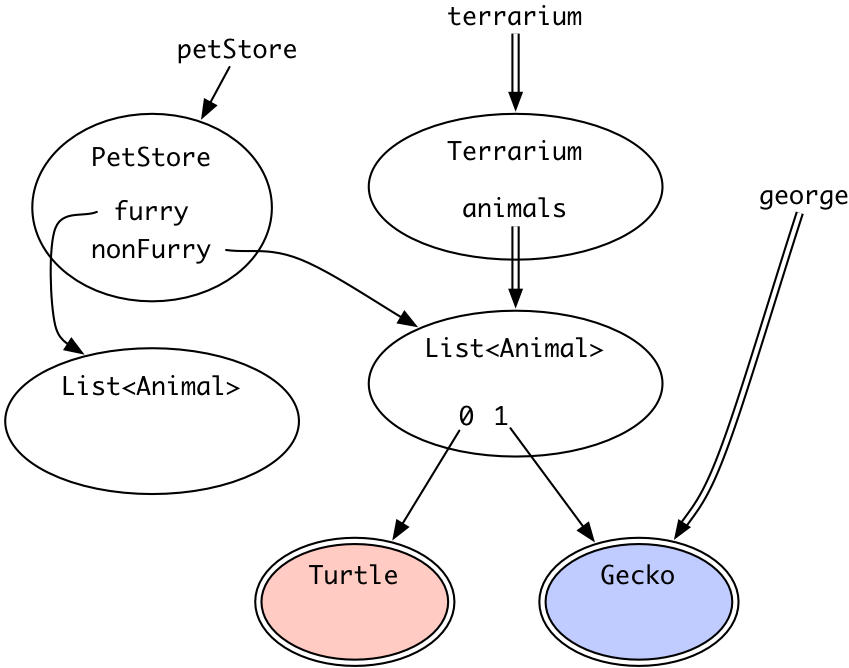Why Are Strings Immutable in Java? Ideal Practices and Usage Situations
Unalterable Strings: A Secret Element in Ensuring Data Uniformity and Dependability
In the world of information administration, the significance of unalterable strings can not be overemphasized. The principle of immutable strings goes beyond mere technicality; it is a linchpin in the complex web of data administration.
The Principle of Unalterable Strings
Immutable strings, a fundamental idea in programming, describe strings that can not be customized when they are developed. Fundamentally, as soon as a string value is appointed, any procedure that shows up to modify the string really creates a new string. This immutability guarantees information uniformity and dependability in applications, as it stops unforeseen adjustments to the original information.
Benefits in Data Uniformity

Data uniformity is critical in numerous facets of software program advancement, including database monitoring, multi-threaded atmospheres, and distributed systems (Why are strings immutable in Java?). Immutable strings contribute dramatically to accomplishing this consistency by stopping information corruption as a result of simultaneous access. In circumstances where several processes or strings interact with the same data at the same time, unalterable strings serve as a protect versus race conditions and synchronization issues
In addition, the immutability of strings streamlines debugging and testing procedures. With unalterable strings, programmers can trust that as soon as a string is set, it will certainly remain the same, making it simpler to map the source of mistakes and guaranteeing that examination cases produce constant outcomes. This reliability in information managing inevitably brings about more stable and durable applications.

Executing Immutable Strings
Making certain the immutability of strings calls for a thoughtful approach to their application in software development. One key approach is to make string courses in a way that avoids adjustments as soon as a string object is produced. By making strings unalterable, programmers can boost data uniformity and reliability in their applications.
To implement unalterable strings properly, developers ought to favor creating brand-new string things instead than customizing existing ones. This practice makes certain that once a string is appointed a worth, it can not be altered. In addition, any procedure that appears to change the string ought to produce a brand-new string with the wanted changes rather than altering the initial.
Furthermore, making use of unalterable strings can streamline concurrency administration in multi-threaded atmospheres. Because immutable strings can not be transformed after production, they can be securely shared amongst numerous strings without the threat of information corruption.
Role in Dependability Guarantee
In software application advancement, the usage of immutable strings plays a critical duty in making sure the dependability of information procedures. Unalterable strings, as soon as developed, can not be customized, ensuring that the data they represent remains consistent throughout the application's implementation. This immutability residential property supplies a level of guarantee that the information being processed will certainly not be unintentionally transformed, bring about unanticipated results or errors in the system.
By integrating immutable strings into software design, developers can boost the integrity of their applications by minimizing the dangers related to click for info mutable data - Why are strings immutable in Java?. Immutable strings assist in stopping information corruption or unintended modifications, which can be specifically essential when dealing with sensitive information or when data integrity is critical
In addition, using immutable strings streamlines simultaneous handling, as several threads can securely access and share string information without the risk of one thread changing the content while an additional is reading it. This aspect adds dramatically to the overall dependability of the software system, guaranteeing constant and predictable actions in data dealing with operations.
Applications and System Assimilation
The seamless integration of unalterable strings right into various applications and systems is pivotal for making sure durable data uniformity and integrity across diverse technical settings - Why are strings immutable in Java?. Unalterable strings play a vital role in enhancing the honesty of information exchanges and interactions within complex software application environments. By incorporating immutable strings into applications, developers can reduce the threats linked with information meddling, unauthorized alterations, and unintended changes, consequently strengthening the overall safety posture of the system
In the context of system combination, unalterable strings function as a foundational aspect for developing safe communication networks and helping with seamless information transfers between various parts. Their immutable nature makes sure that information transmitted in between systems remains unmodified and proven, reducing the likelihood of incongruities or errors that might endanger the integrity of the whole system. Additionally, unalterable strings can boost interoperability between diverse systems by giving a standardized layout for data depiction, allowing extra efficient data processing and exchange protocols throughout interconnected platforms. By adopting immutable strings in applications and system combination procedures, organizations can strengthen their data framework and support the reliability and uniformity of their details assets.
Verdict
To conclude, unalterable strings play a vital function in preserving information uniformity and dependability in various applications and system assimilations. By guaranteeing that strings can not be changed once produced, the honesty of information is preserved, decreasing the danger of mistakes and incongruities. Executing immutable strings can considerably boost the integrity of systems, eventually bring about more trustworthy and accurate information handling.
